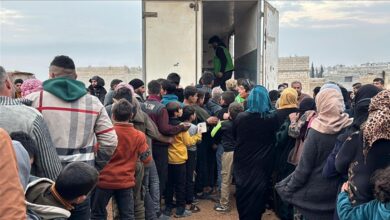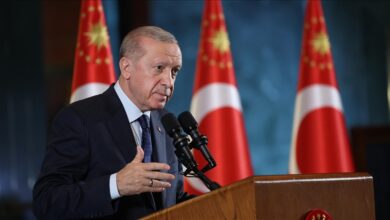
UNHCR: Denmark seeks to deport Syrian refugees unjustified
The Danish authorities have come under new criticism over their denial of residency permits to Syrian refugees, considering the situation in Damascus safe, in a path that the United Nations said lacks justification.
The United Nations High Commissioner for Refugees said in a statement issued in New York: “The agency does not consider recent security improvements in parts of Syria sufficiently substantial, stable or permanent to justify ending international protection for any group of refugees.”
It added, “It continues its call for the protection of Syrian refugees and demands that they not be forcibly returned to any place in Syria, regardless of who controls the area in question.”
Since the end of June 2020, Copenhagen has embarked on a large-scale process to review each of the 461 Syrian files from the capital, Damascus, on the grounds that “the current situation in Damascus no longer justifies (granting) or extending a residence permit.” This is the first decision by Its kind for a country in the European Union.
Last week, the televised appeal of a girl threatened with deportation, a few months before the baccalaureate exams, overshadowed the relative indifference that had so far surrounded the case in the tiny Scandinavian country.
The case of Aya Abu Daher (19 years old) stirred up feelings in the country by asking her with tears in her eyes about what she “did wrong”. The Syrian young woman, described by her school director in Nyburg as an “excellent student,” recently learned that her residency permit, which expired at the end of January / January will not be renewed.
Likewise, 94 Syrians were denied permits in 2020, out of 273 cases that were studied individually, according to the most recent report available to the Danish Immigration Agency, dating back to last January. Some of them have been placed in immigration detention.
Denmark follows a strict reception policy aimed at achieving “zero asylum seekers”, which encourages the voluntary return of Syrians, as it has only issued temporary residence permits since 2015.
Legally, these permits are granted without time limits in the case of “a very dangerous situation in the country of origin, characterized by arbitrary violence and attacks on civilians,” but they can be revoked de facto when the situation is not judged in that way.




